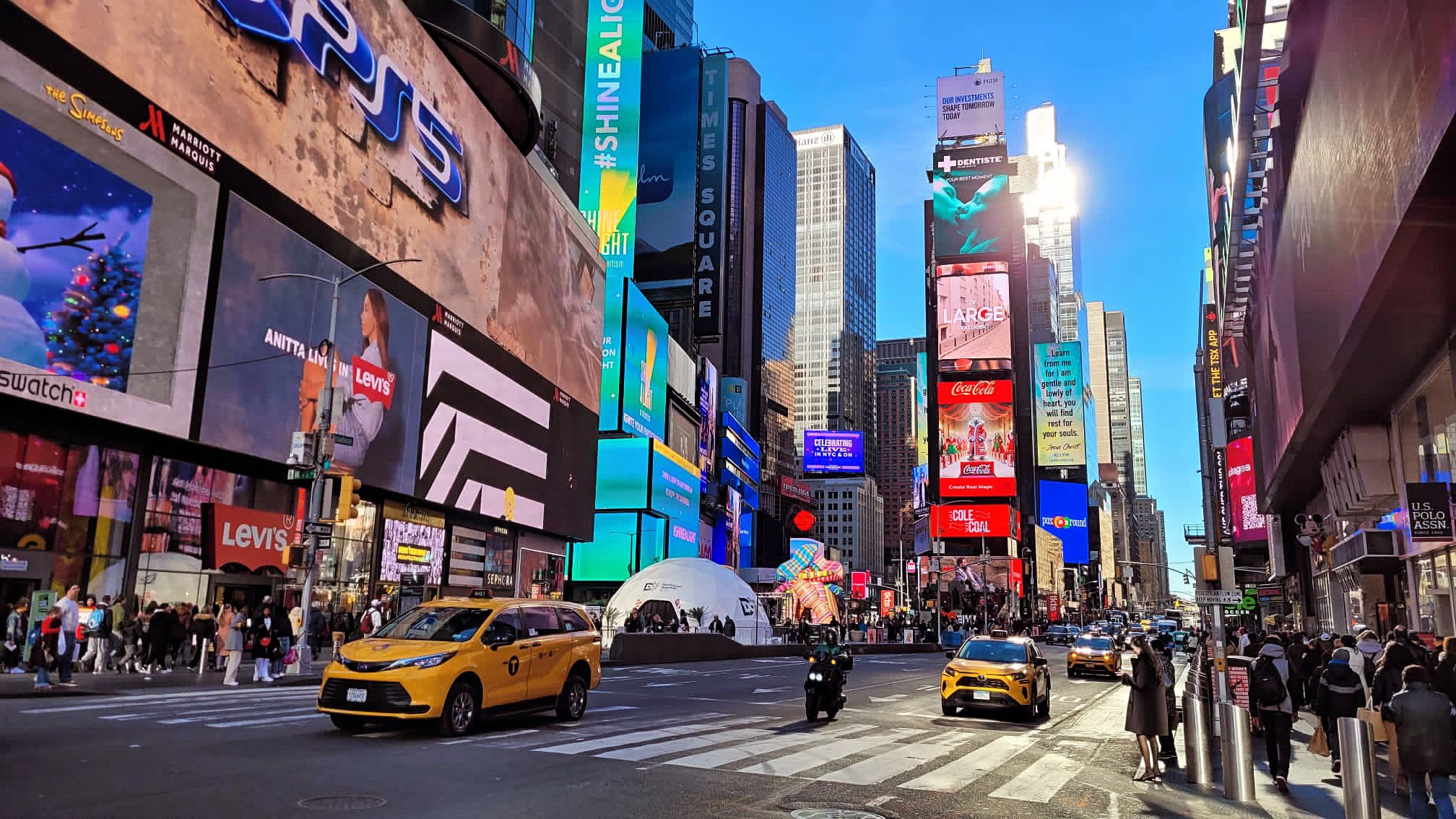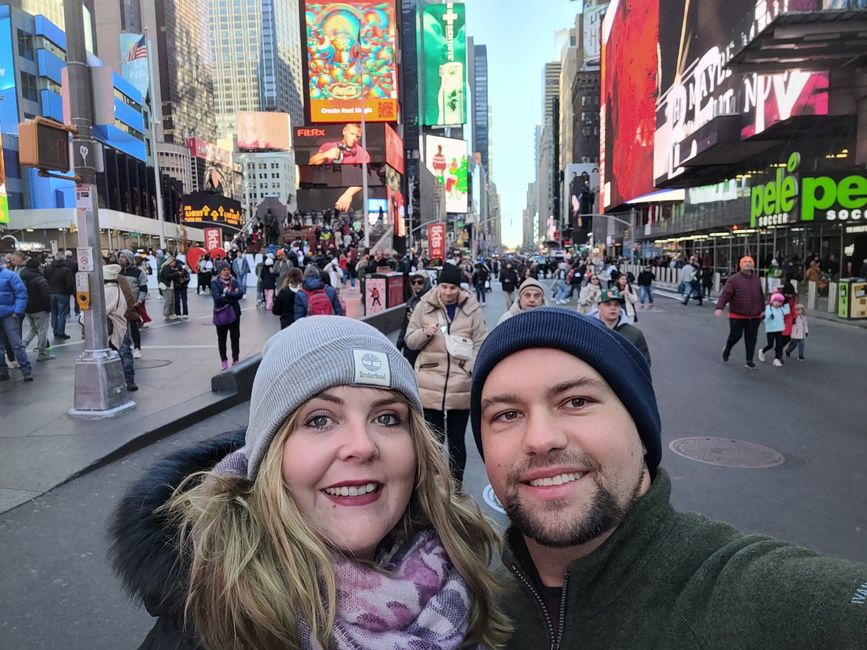
keep-calm-and-travel-on
vakantio.de/keep-calm-and-travel-on
Sri Lanka - Negombo and Anuradhapura
प्रकाशित भइल बा: 13.08.2023
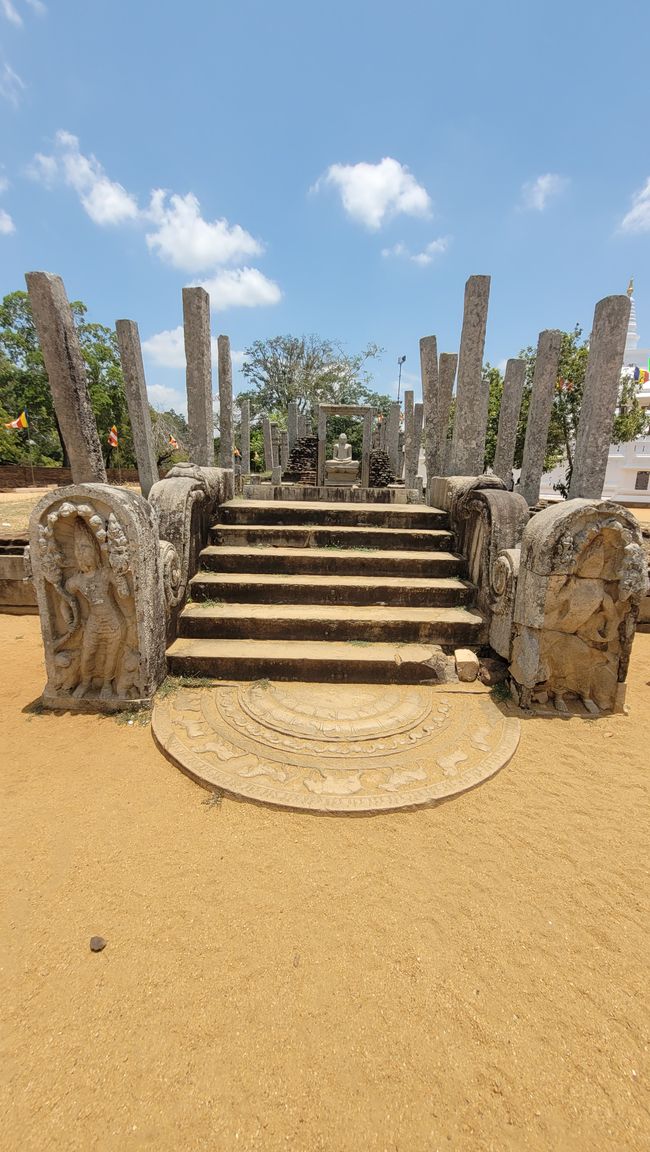
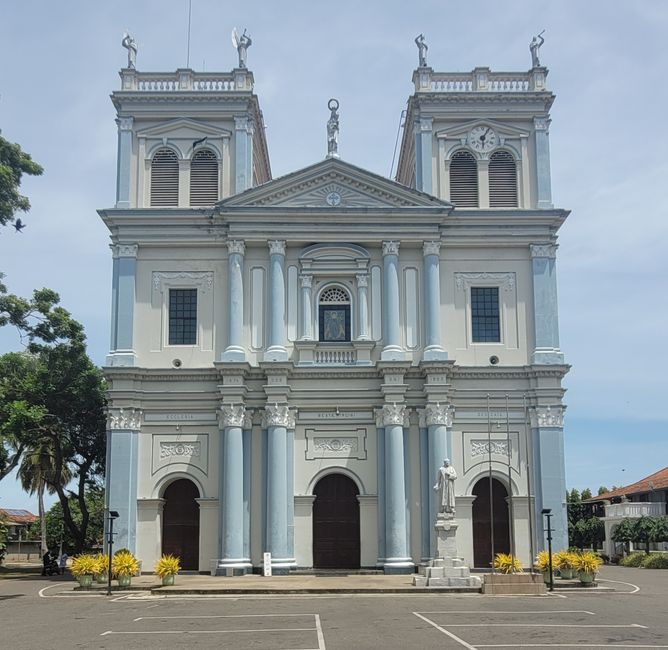
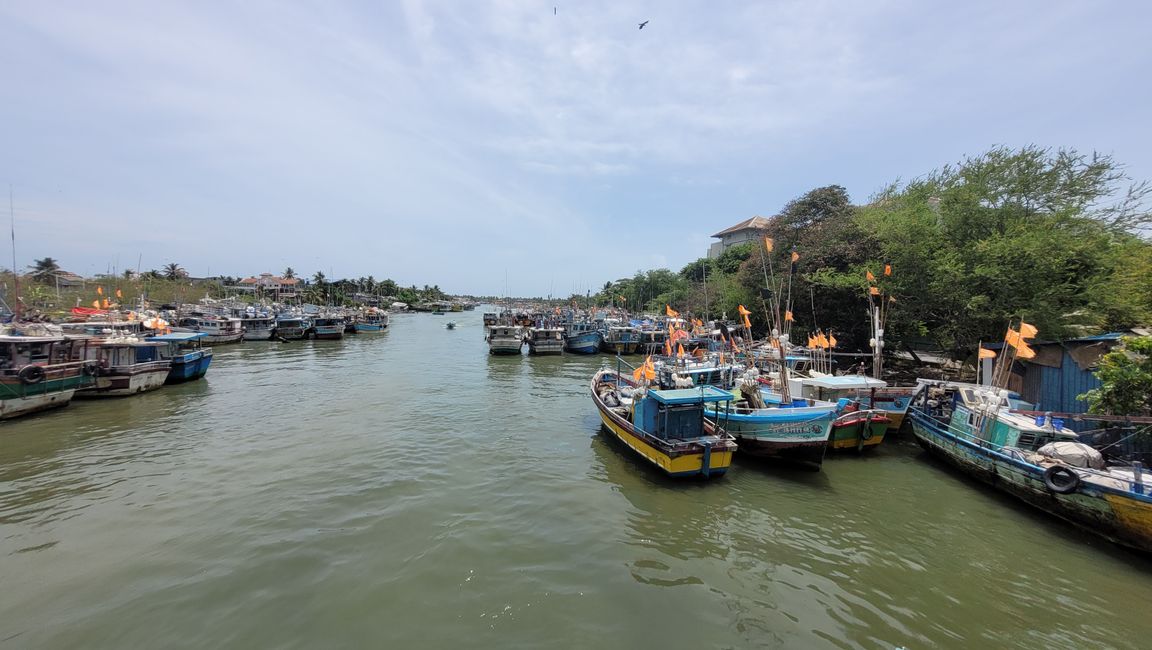
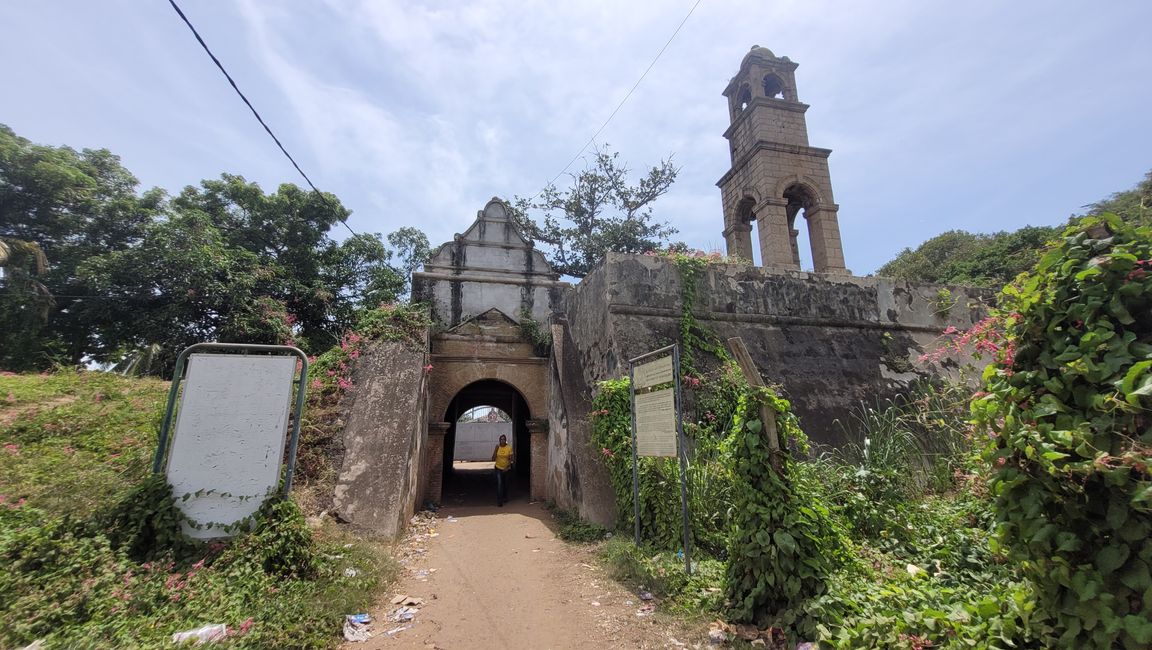
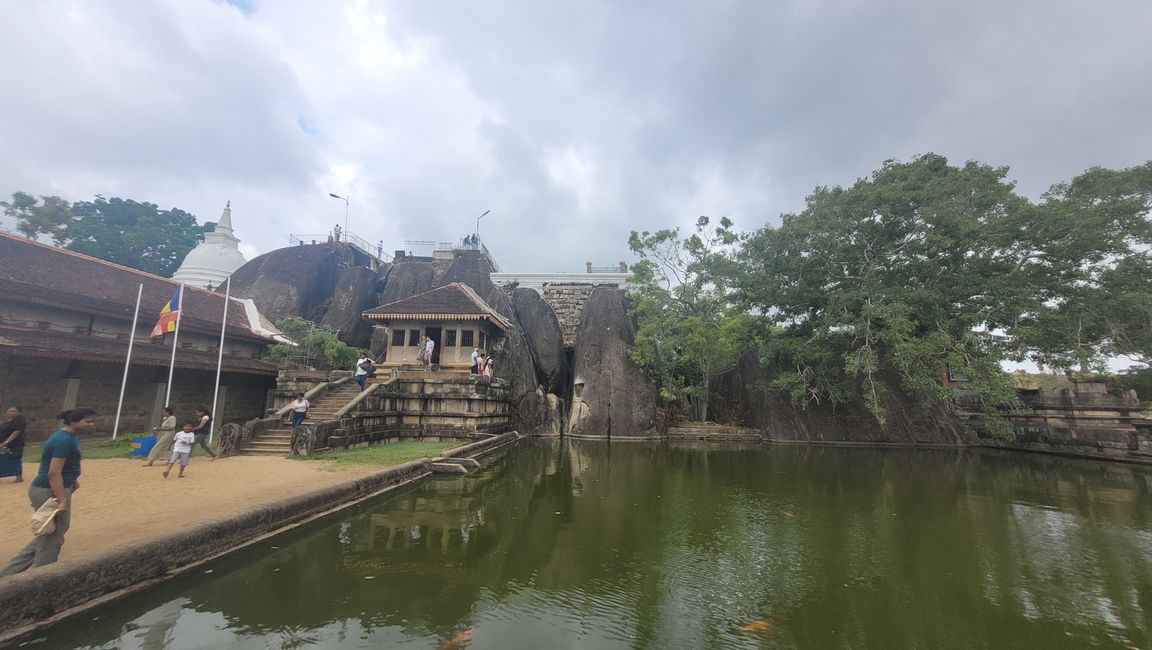
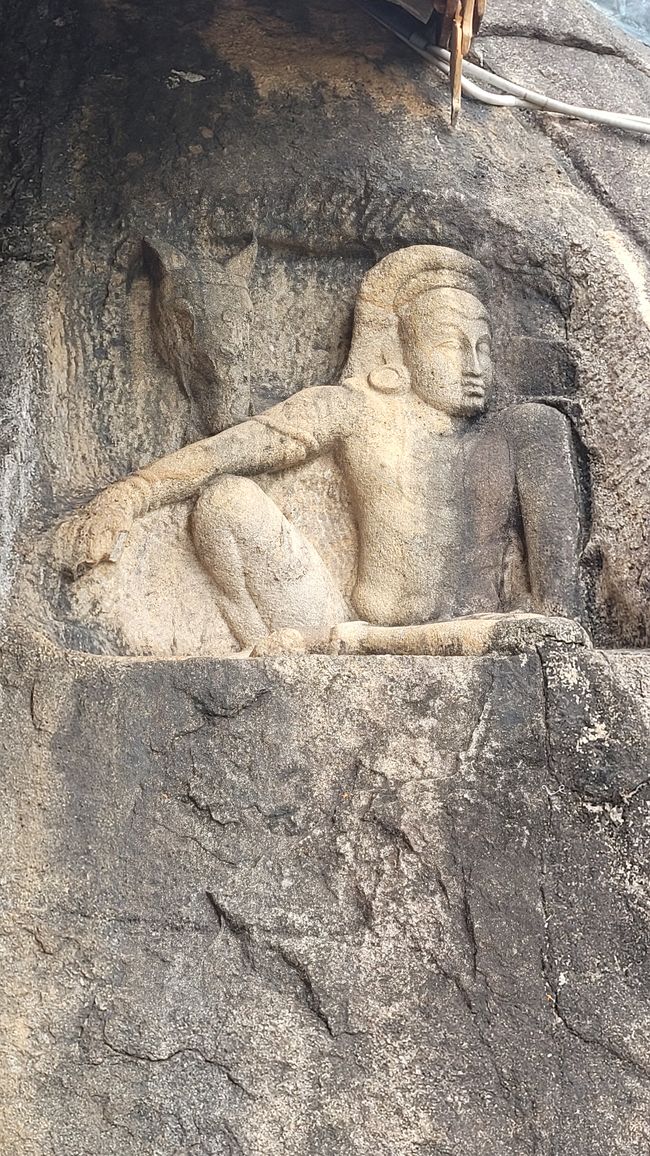
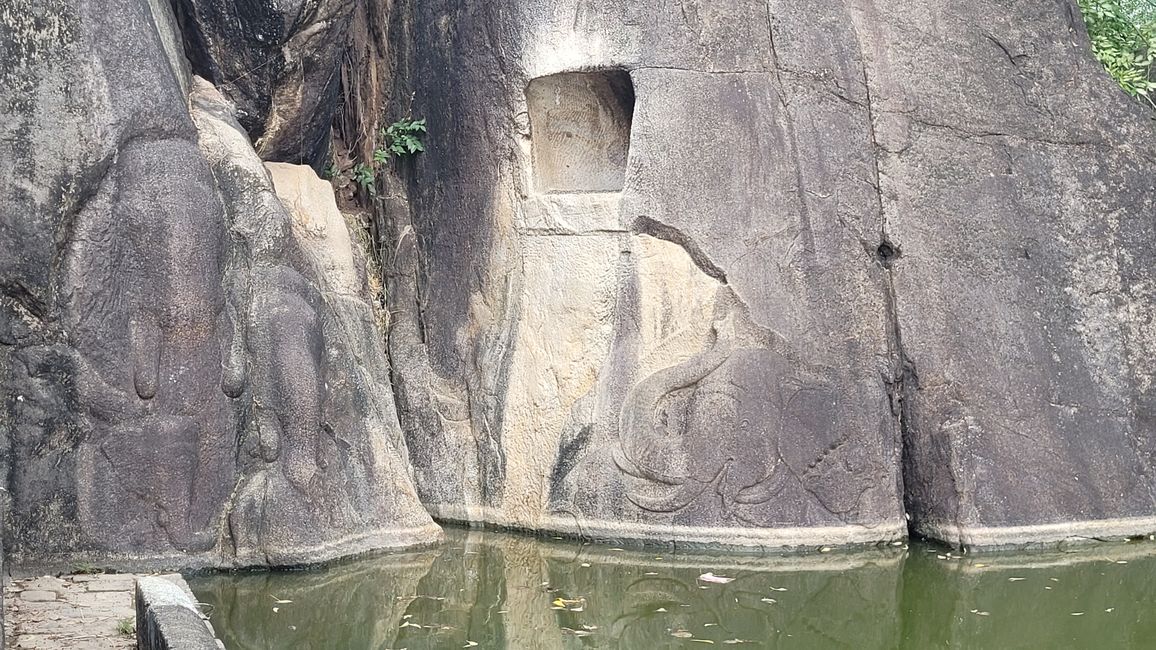
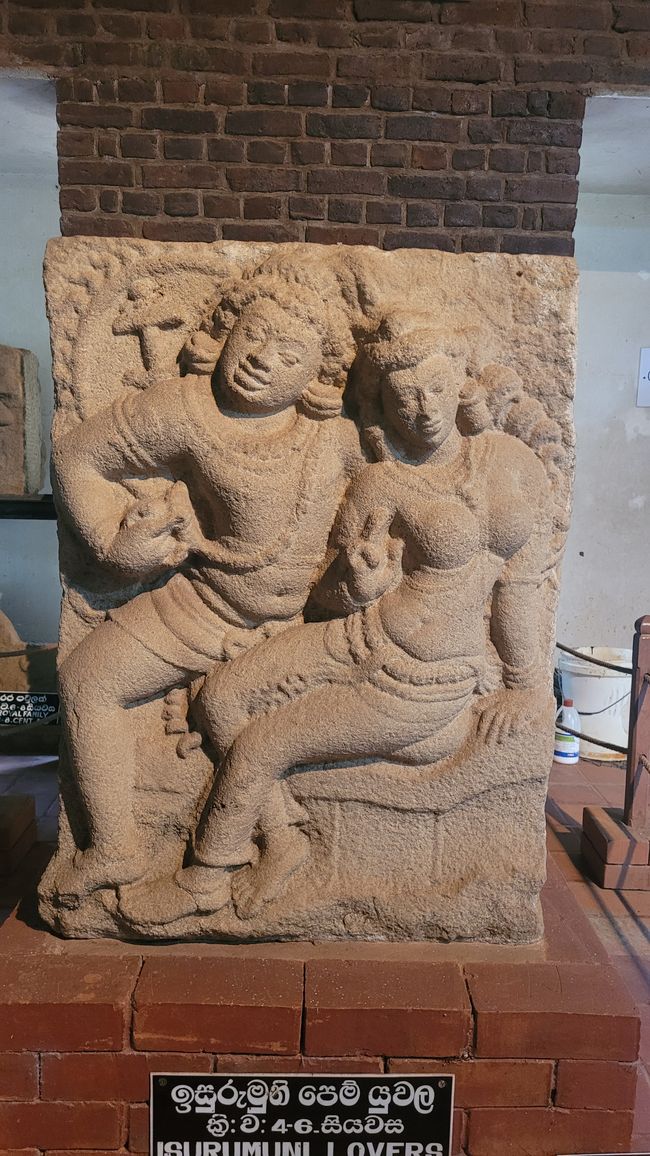
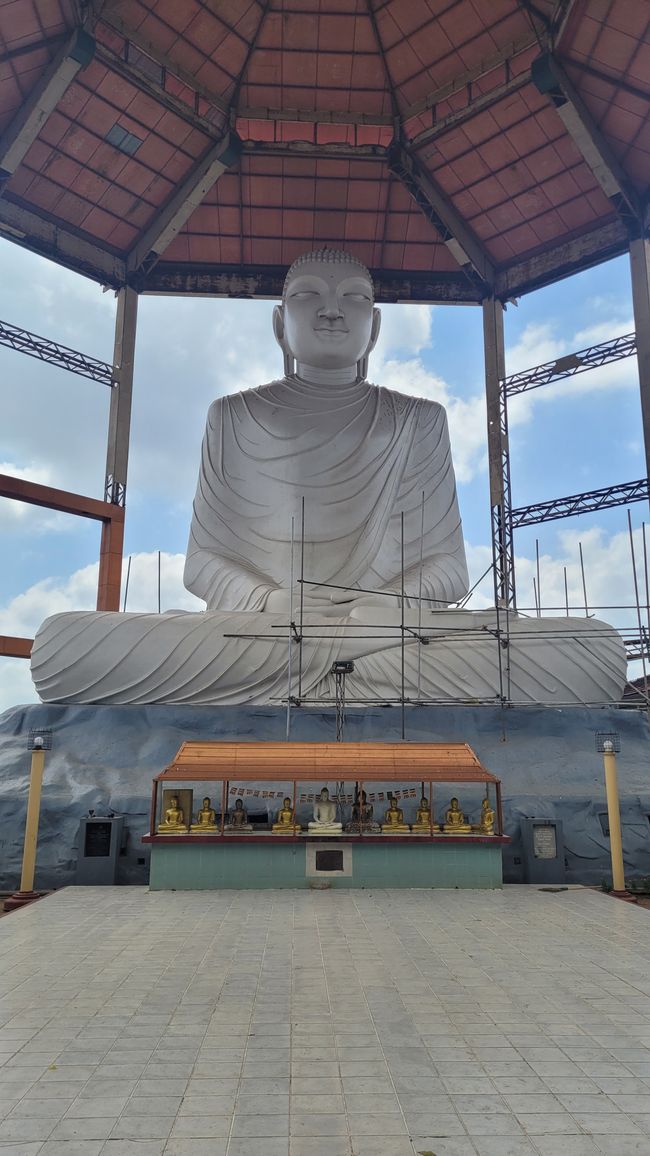
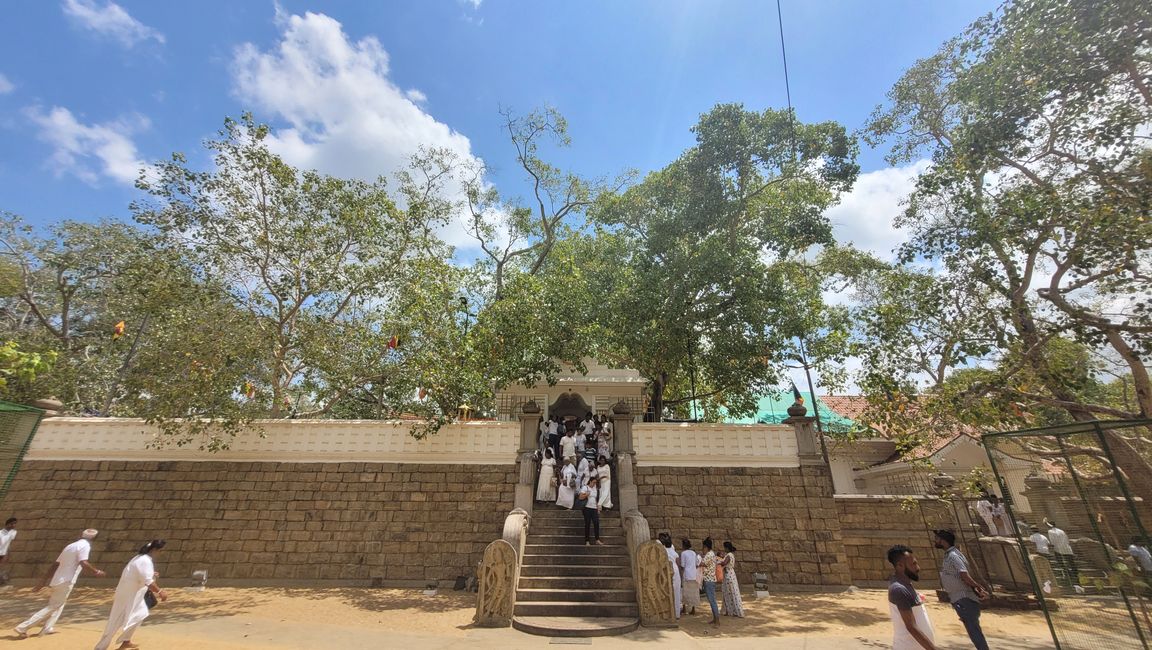
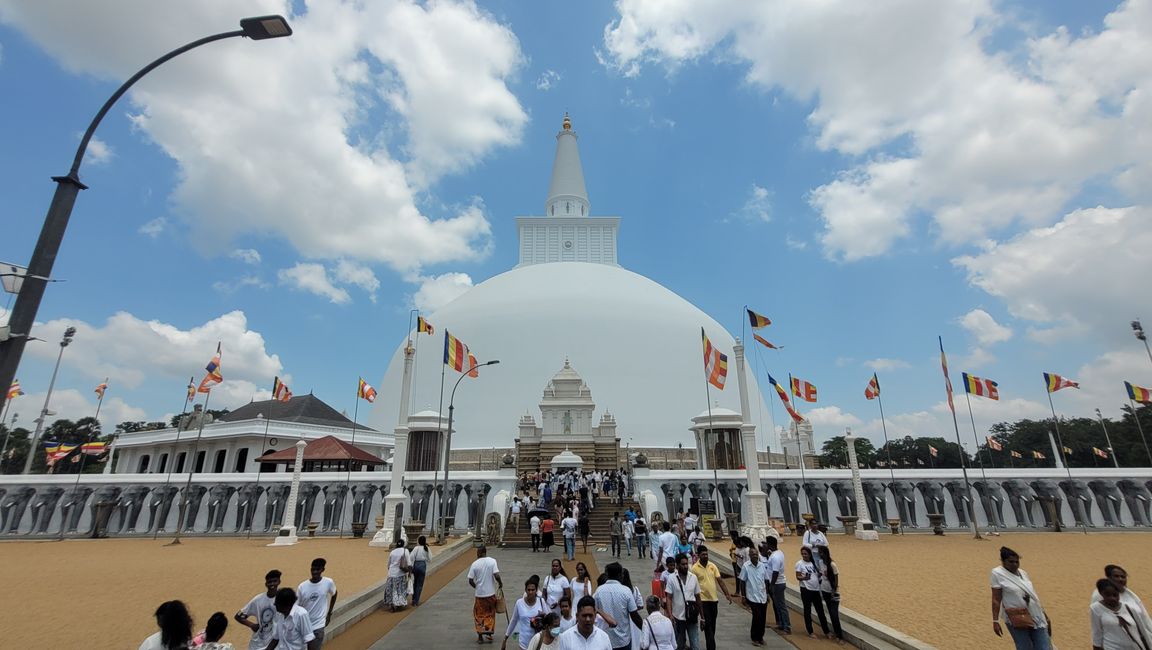
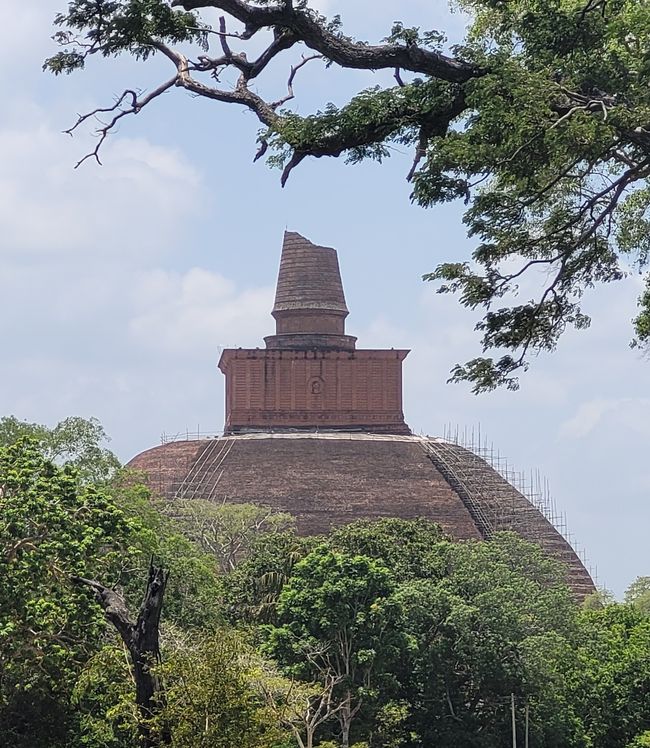
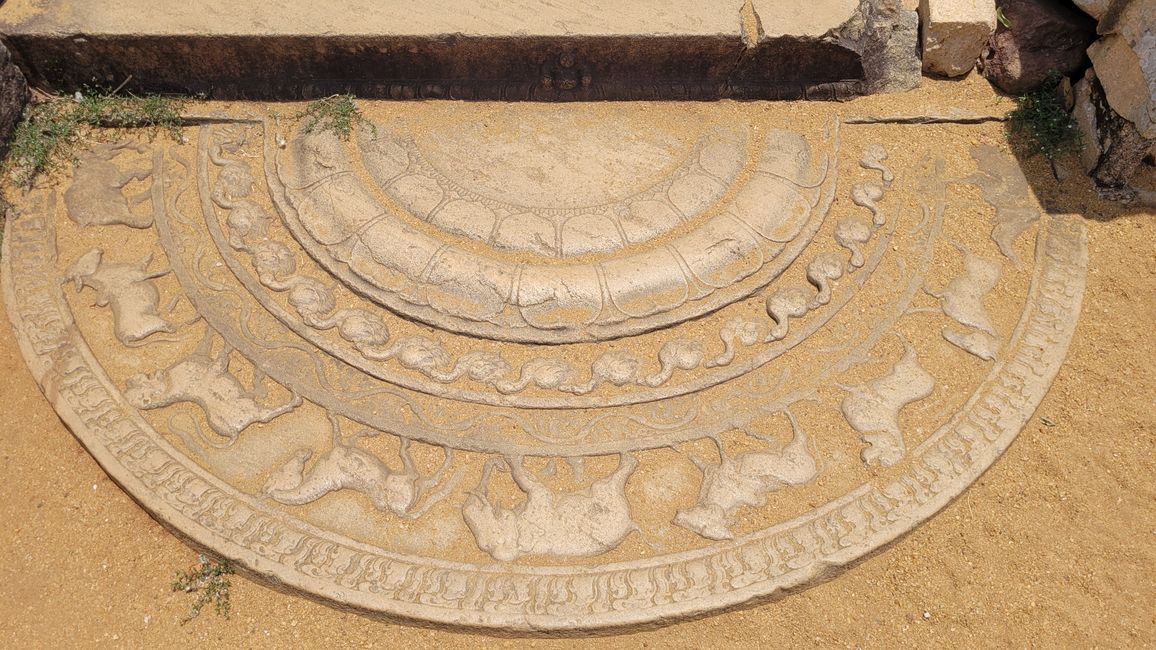
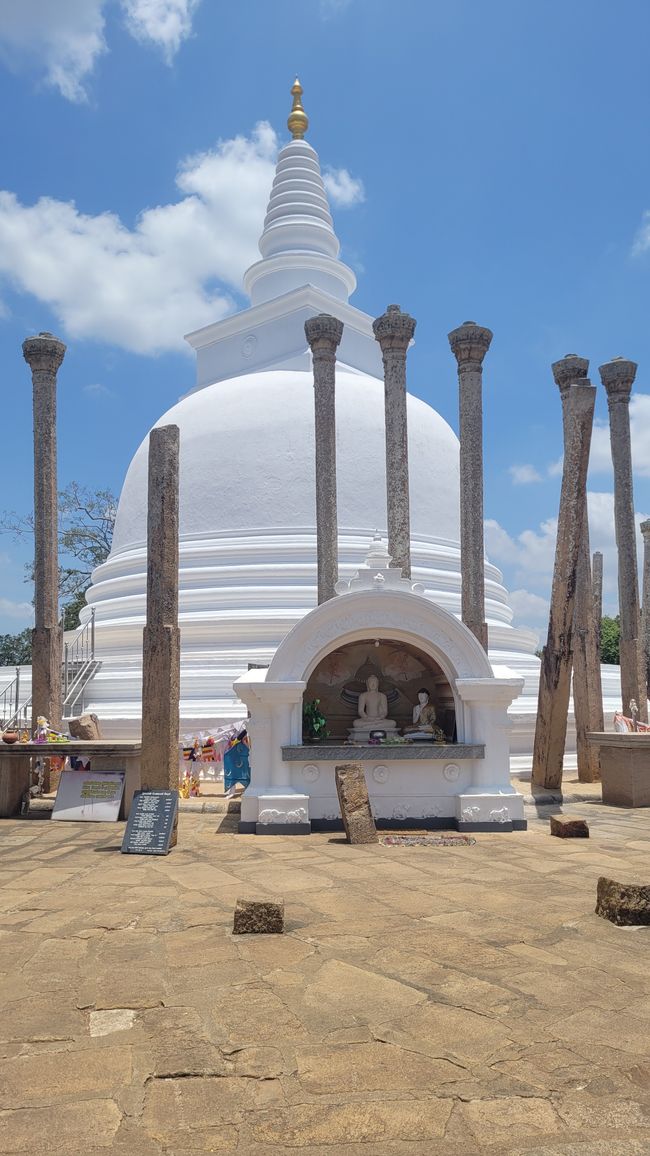
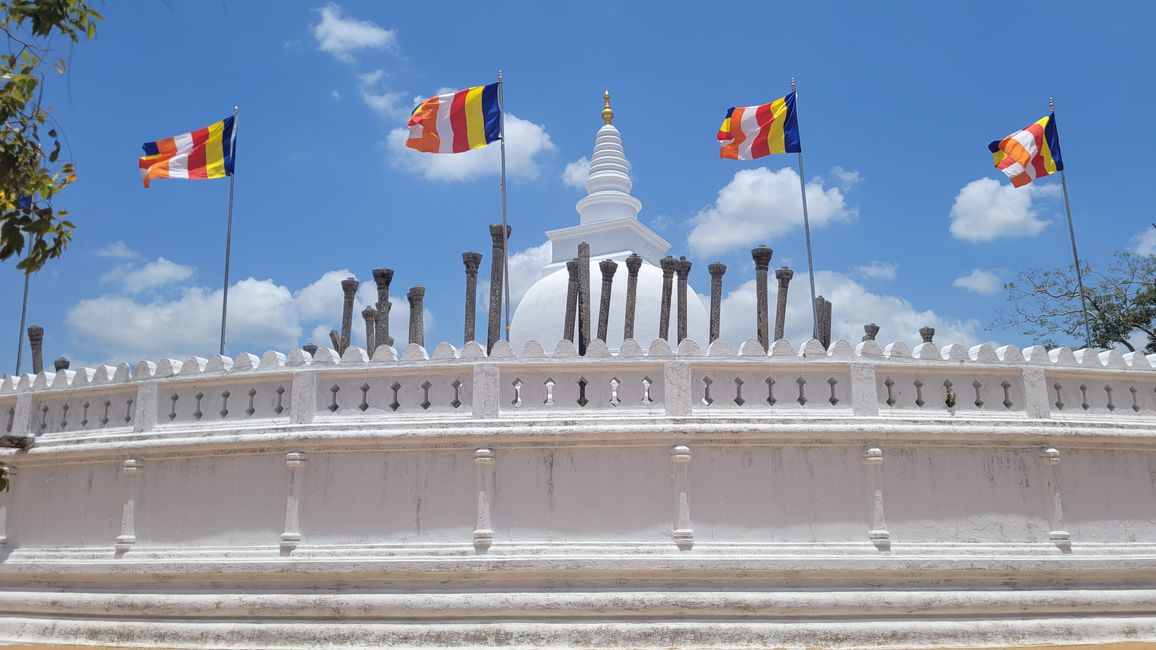
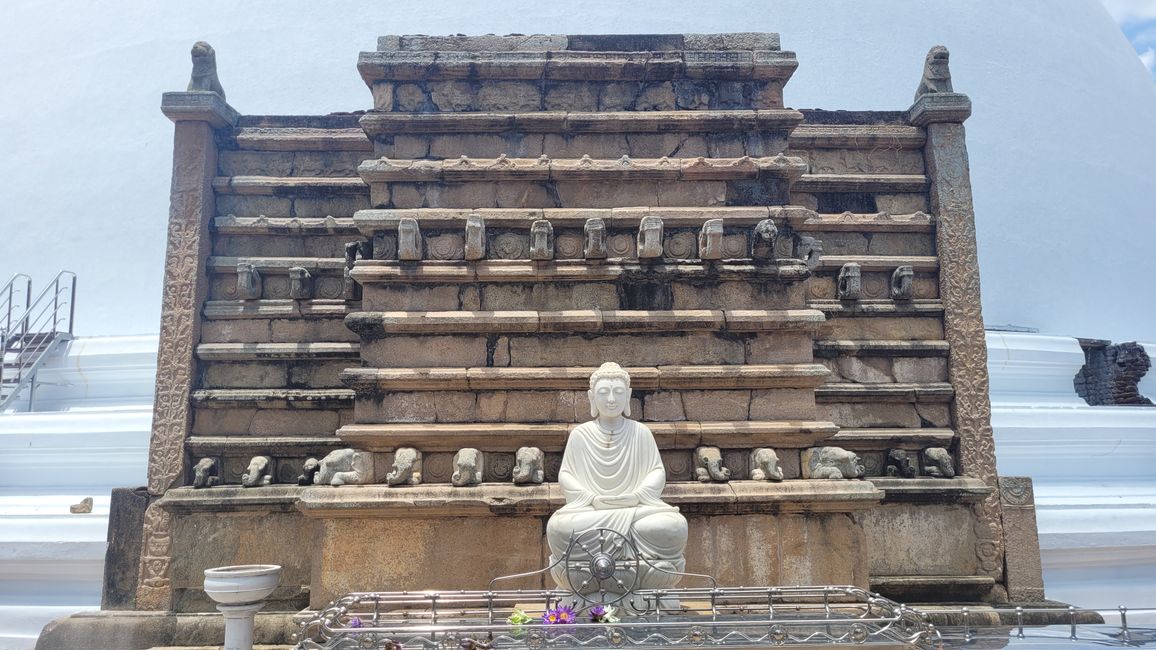
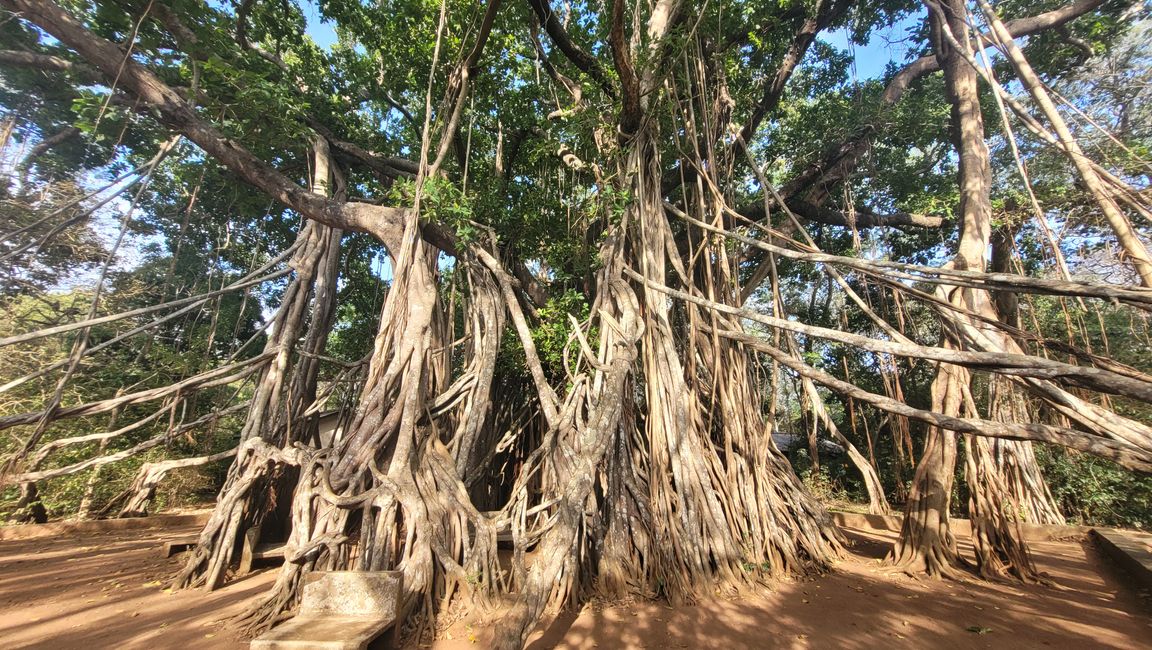
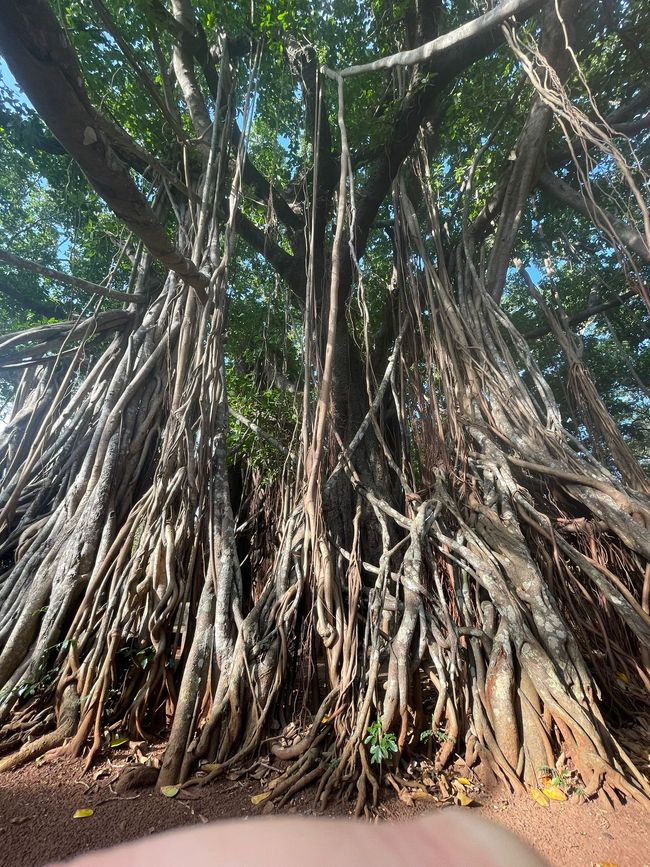
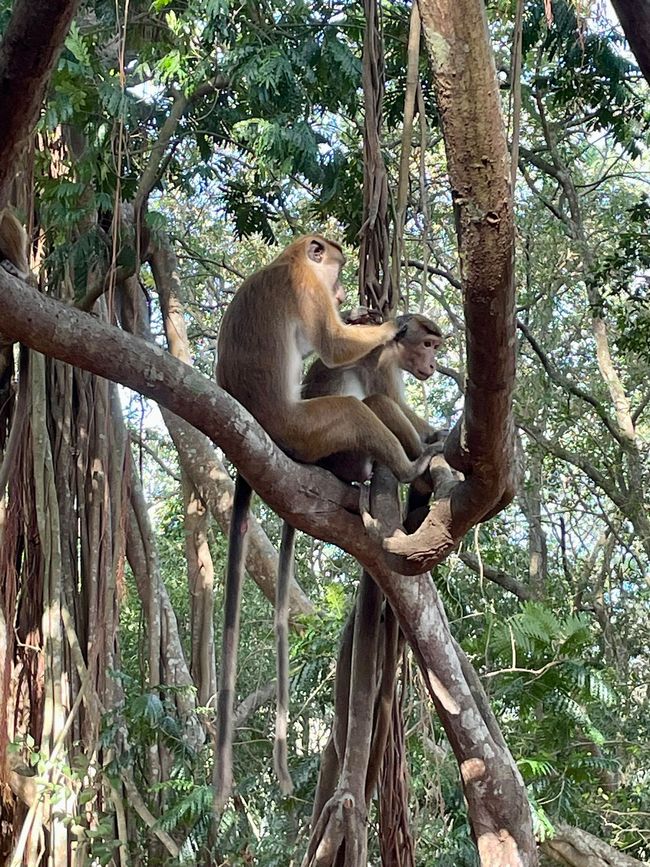
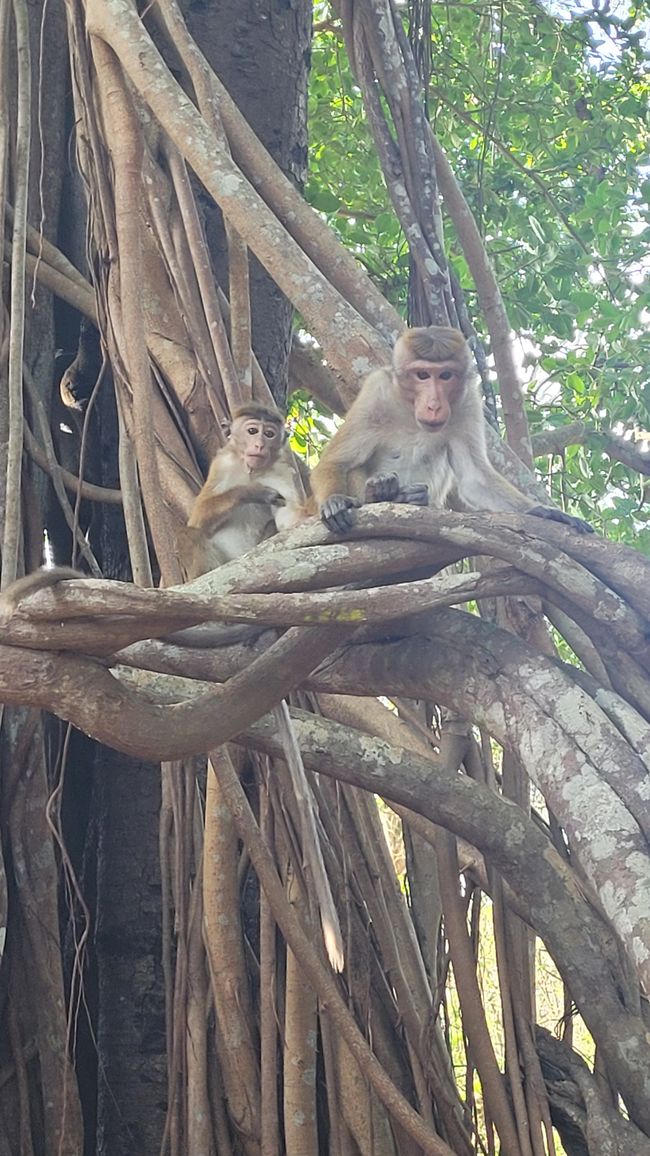
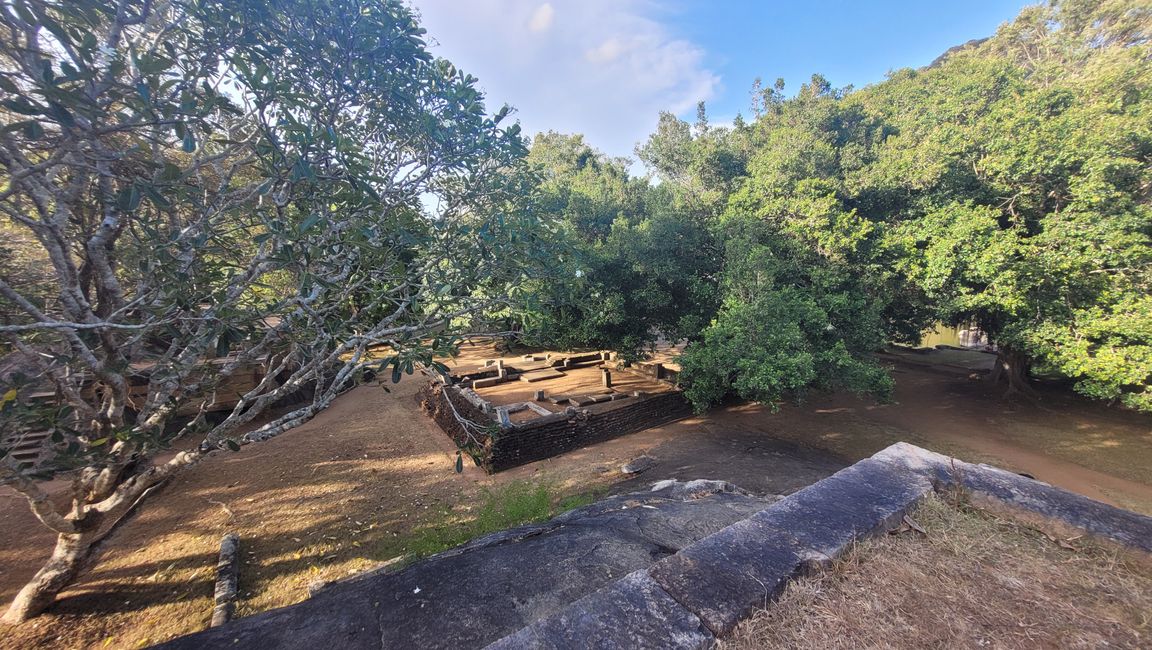
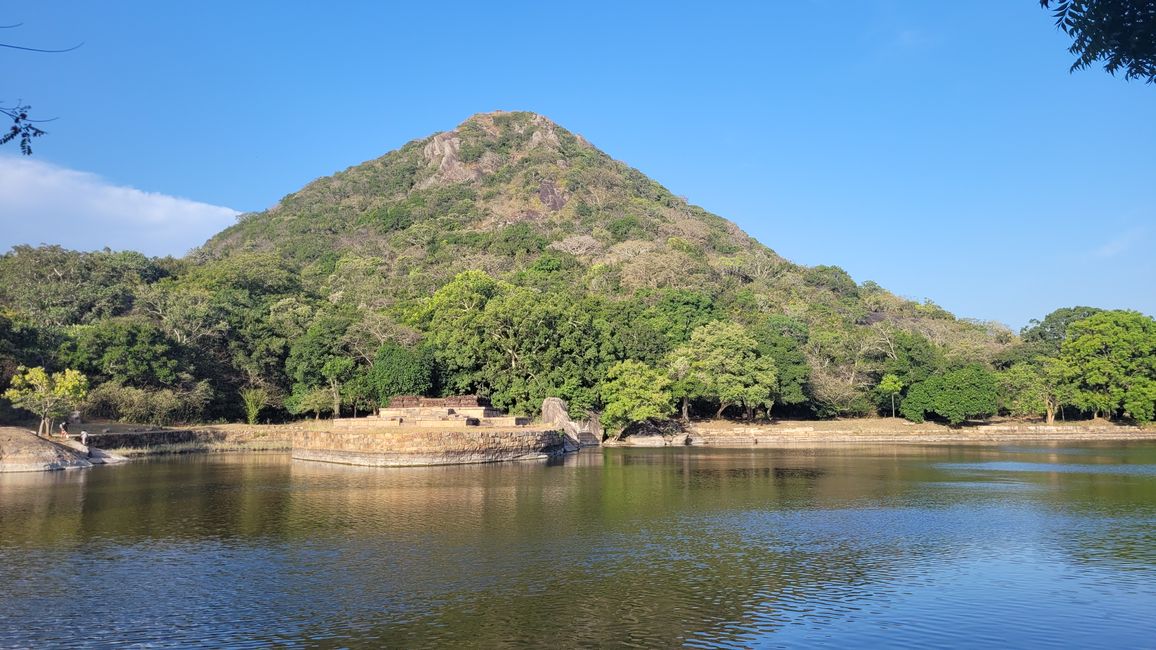
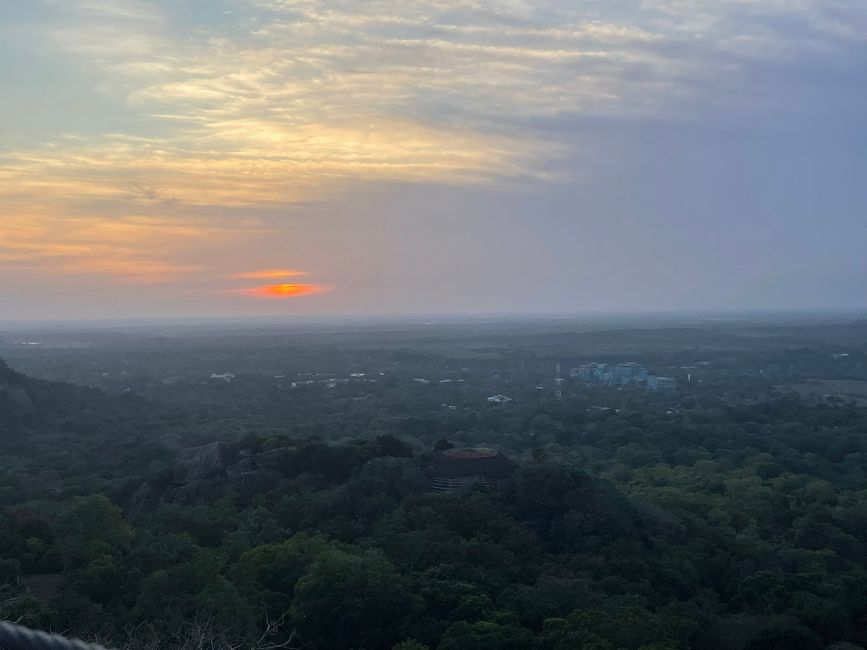
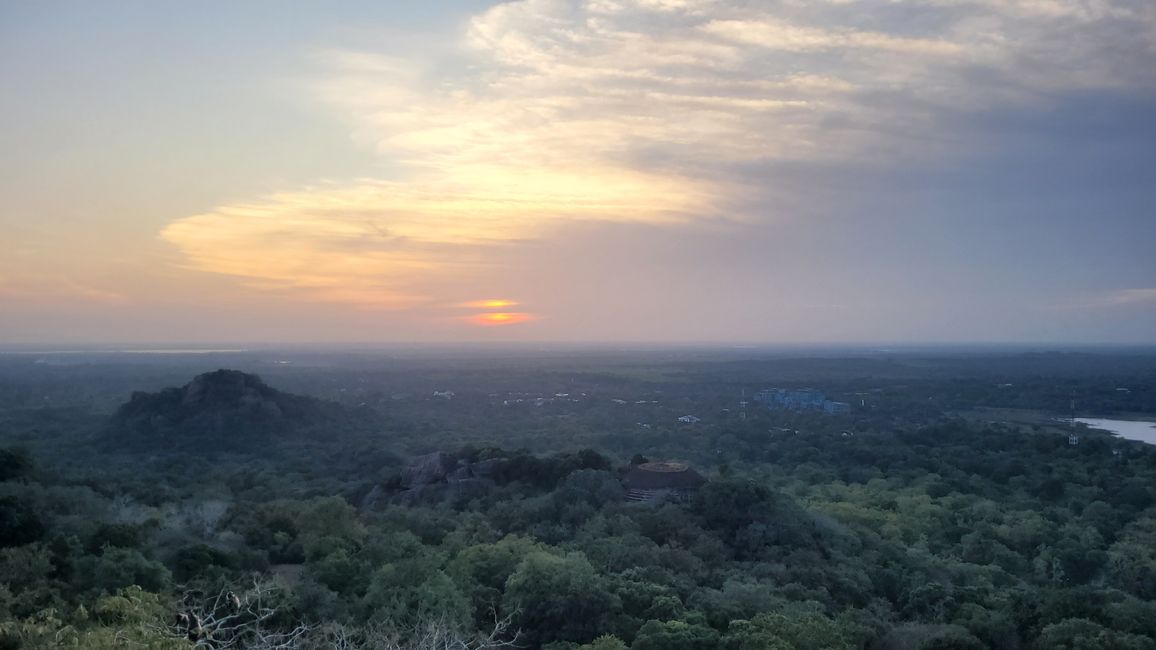
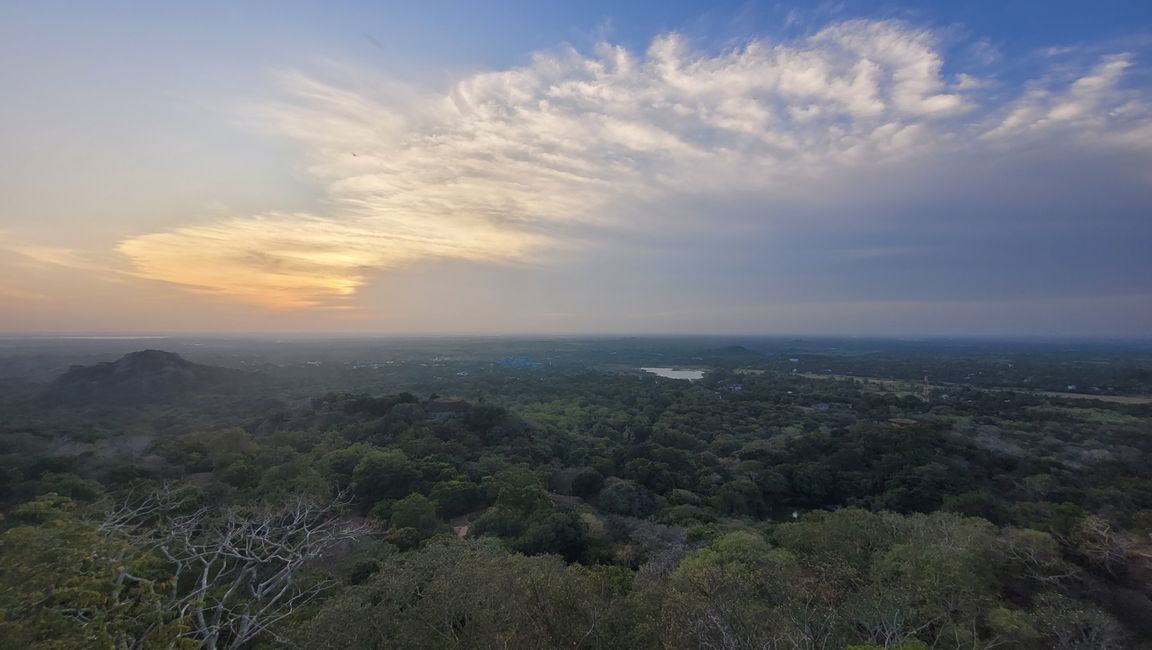
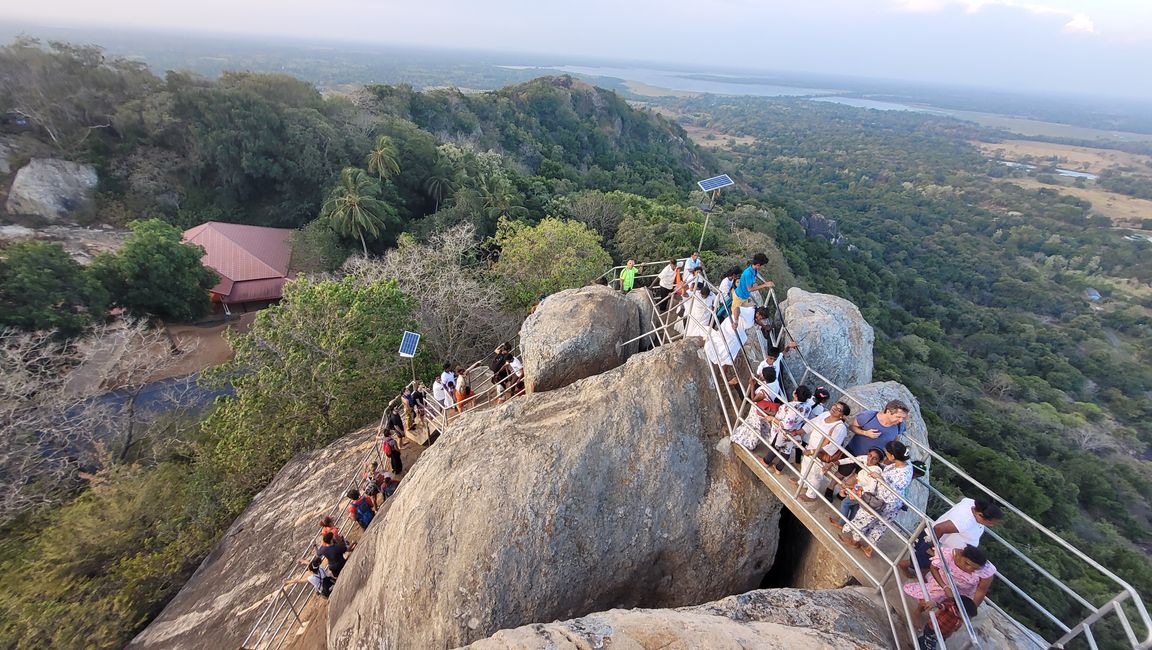
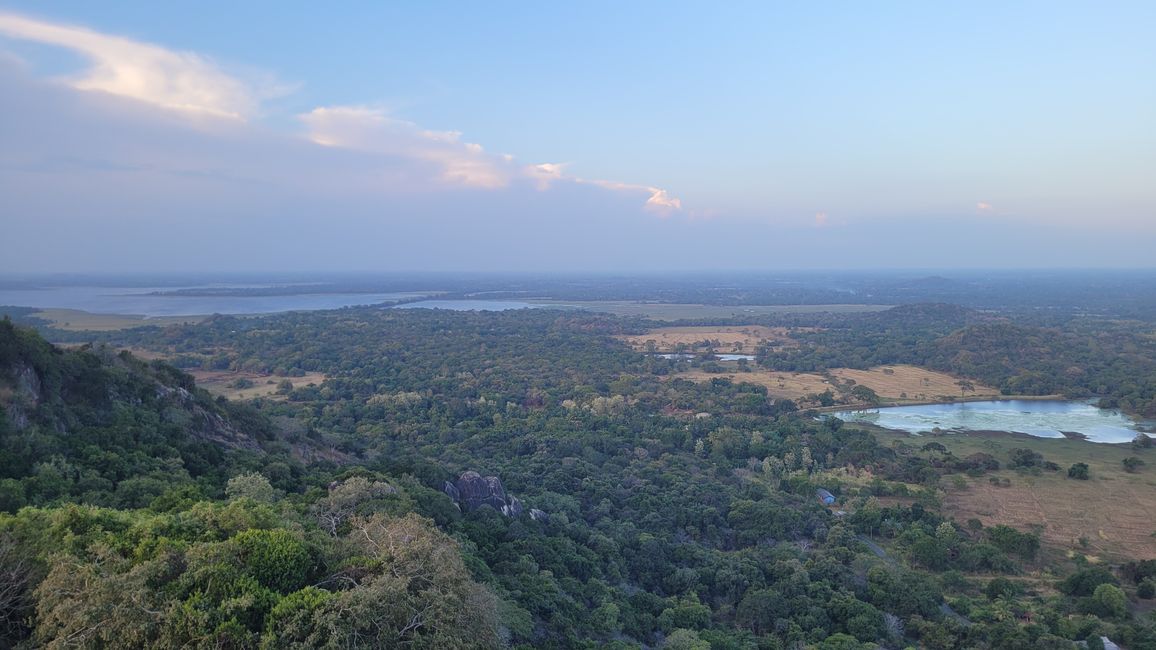
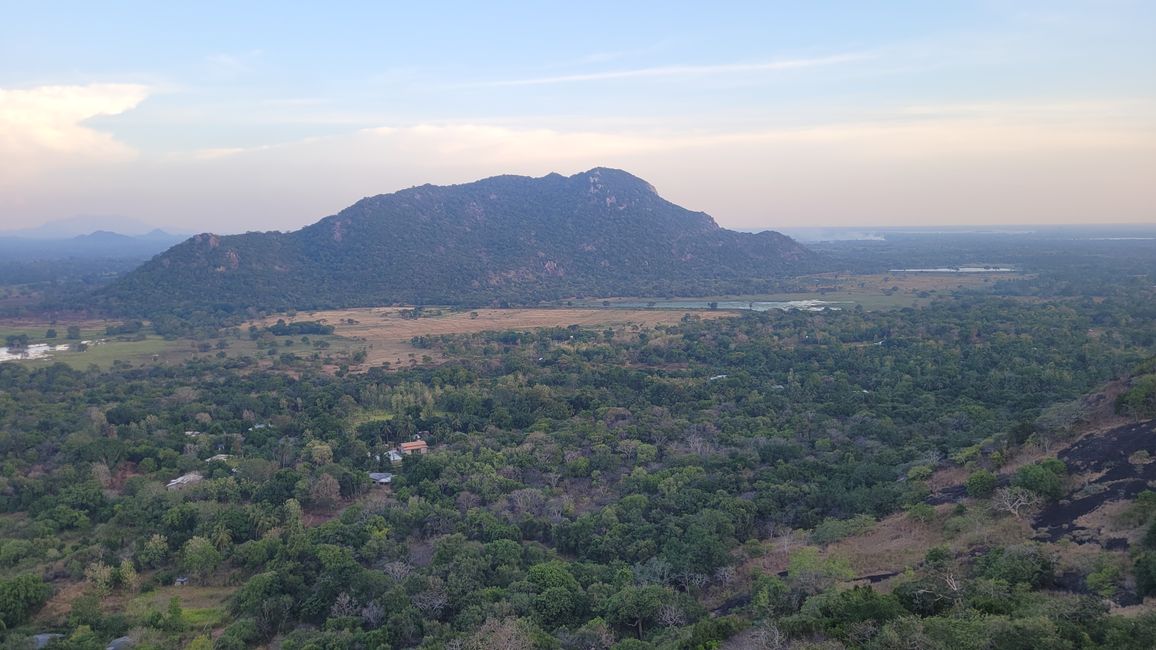
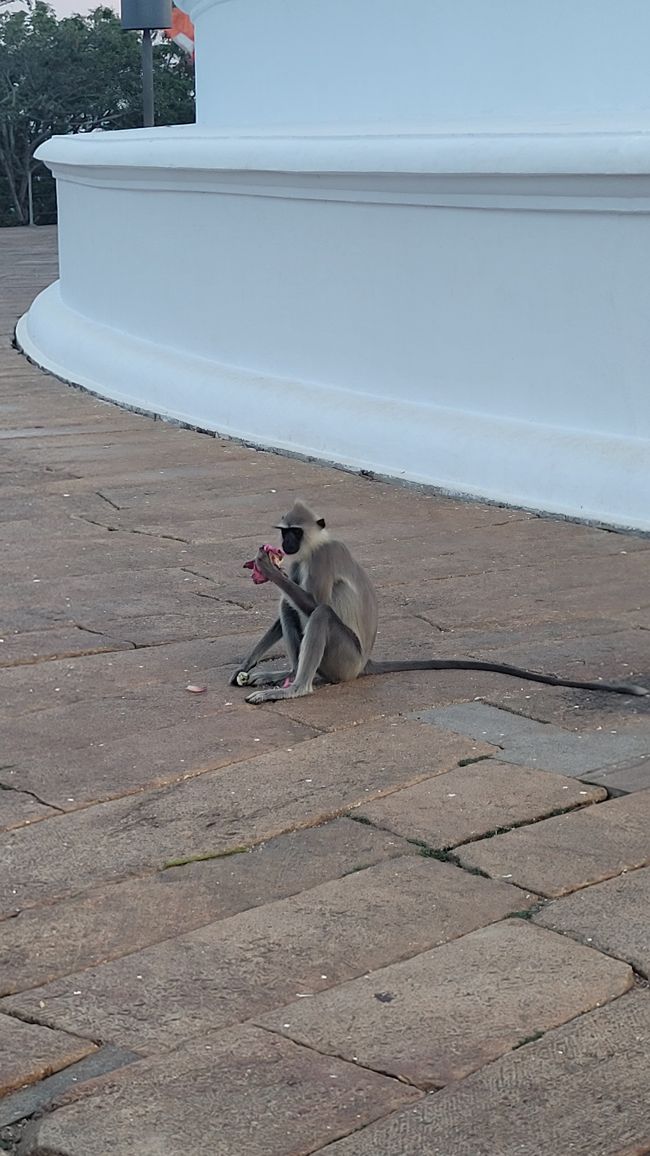
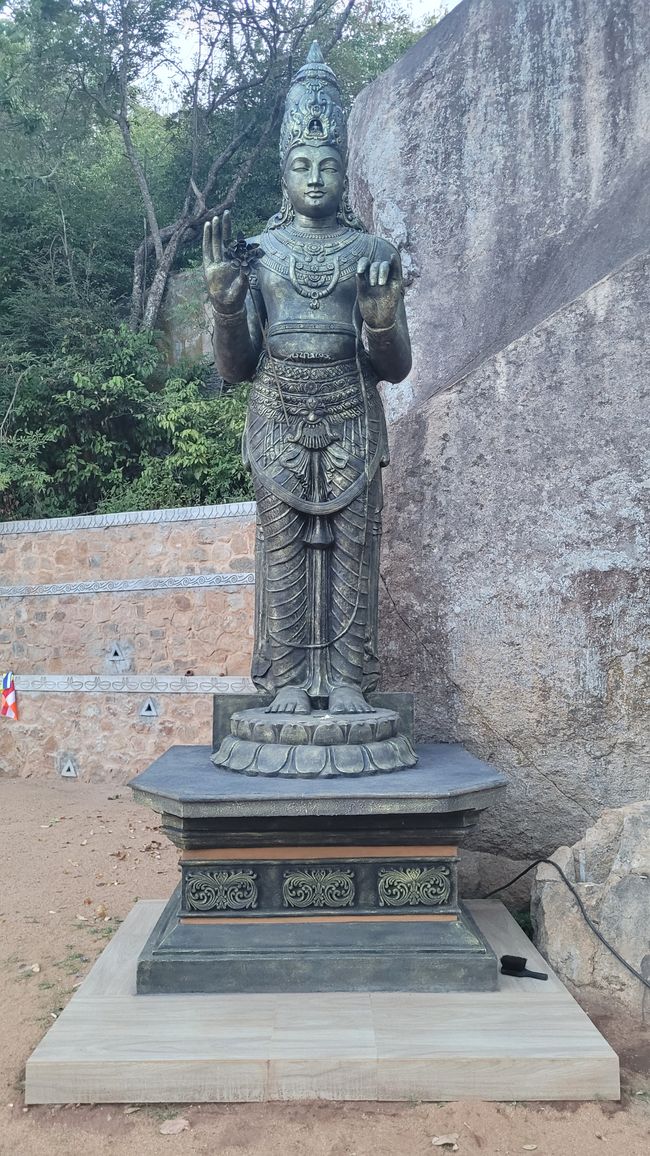
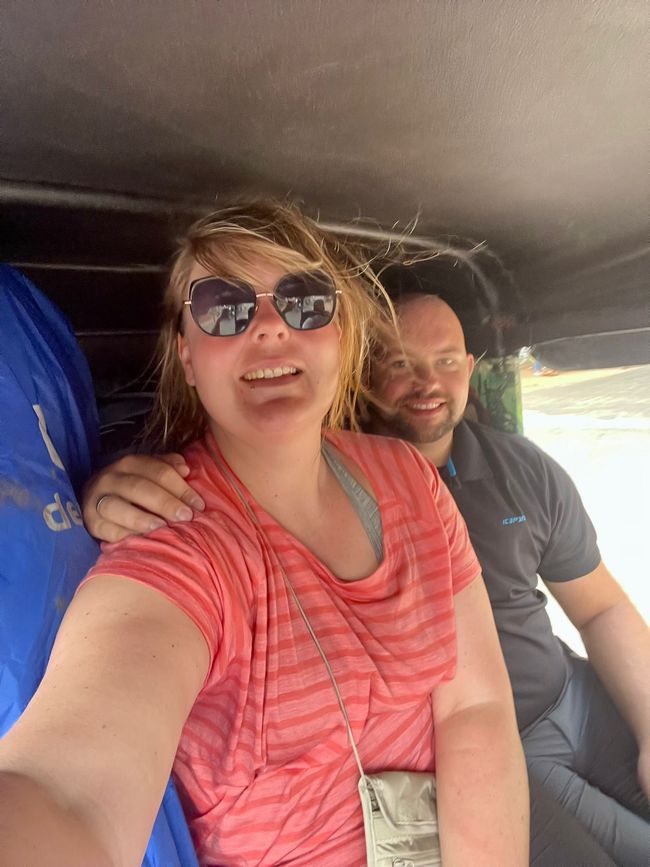
न्यूजलेटर के सब्सक्राइब करीं
On Wednesday we arrived late in the evening in the capital city of Sri Lanka, Colombo. Since we arrived so late, we took a hotel in Negombo near the airport. One of the first impressions of the people here was their open and friendly nature. Even the typical taxi providers at the airport were not pushy, as often happens in Asia.
In Negombo, we only spent one day to do things like buying a SIM card and planning our onward journey. Additionally, we explored the beach and parts of the city. Negombo is not a particularly impressive city, but there are a few colonial buildings that are quite nice. It was exciting that the 'guest father' of our guesthouse recommended us to visit the fort. When we followed this advice, it turned out that only the facade of the main entrance is still standing and directly behind it is the local prison. That describes Negombo quite well😉. However, our accommodation was really nice, the hosts were very friendly and it was also cheap. On our second evening, the 'guest father' even recommended us some travel tips and sights that we hadn't considered.
On Friday (11.08) we traveled to Anuradhapura by public bus. The buses here are often brightly painted and also colorful on the inside. Many figures, flowers, etc. are often hung in the windshield. Since the buses usually do not have air conditioning, they are driven with open windows and doors, and loud music is played.
Anuradhapura is the former royal city from which large parts of Sri Lanka were ruled for over 1000 years. In addition, the most important Buddhist sites in the whole country can be found here. The city was founded in 400 BC and was one of the 10 largest cities in the world at that time and is now a UNESCO World Heritage Site. The city houses the oldest temples in Sri Lanka and the oldest stupas. Stupas are round buildings with a tower on top, which usually contain relics of Buddha. In addition, the largest stupa in the world at that time is located here; today it houses the largest stupa in Asia. At the time of its construction, the larger stupa was even the third largest building in the world, surpassed only by the pyramids of Giza. The highlight for many tourists is the Maha Bodhi, the oldest tree planted by human hands. The tree is 2356 years old and is a descendant of the tree under which Buddha attained enlightenment and became Buddha. Since this tree is such an important sanctuary, the year of its planting is known. Honestly, we had imagined a slightly more impressive tree at a tree over 2000 years old, but the atmosphere on site was breathtaking due to the many pilgrims.
In the afternoon, we took a tuk-tuk to Mihintale, the place where Buddhism took root in Sri Lanka. On the way, we stopped at an old banyan fig tree. This tree is really impressive because it forms countless aerial roots that develop into new trunks of the main tree. As a result, a single tree can occupy up to 100 square meters of ground area. The figs also make the tree popular with monkeys and we were able to discover a large number of them in the tree.
According to tradition, an Indian monk met the king of Sri Lanka in Mihintale and convinced him of Buddhism, after which the king declared Buddhism as the state religion and spread it throughout the country. Thus, this place is considered the birthplace of Buddhism in Sri Lanka. Later, monks built a monastery here, some parts of which exist only as ruins. Nevertheless, it is still an important place of pilgrimage and hundreds of people crowd over a narrow rock ascent to climb the rock on which the meeting took place. Age doesn't matter here, children climb up here with their families just as older people do. Although the inhabitants of Sri Lanka are actually very friendly and helpful, the ascent is very chaotic and people push past each other without consideration. Since the area is very flat, the climb was still worth it and we could enjoy a great view.
For sunset, we climbed the neighboring hill, on which a stupa was built. From there, you have a great view of the sunset and the city of Anuradhapura. It was a bit cloudy, but just before we were about to leave, a hole formed in the clouds through which we could still see the sun setting.
At the end of the day, our hostess spoiled us with regional cuisine before we continue to Trincomalee tomorrow to enjoy the beach and the sea.
न्यूजलेटर के सब्सक्राइब करीं
जबाब (1)
Verena
Hallo Ihr :) wir sind im November auch in Sri Lanka und wollen von Negombo nach Anuradhapura reisen. Fahren dort viele öffentliche Busse? :) im Internet ist nicht so viel dazu zu finden leider. Bzw. fahren diese wohl dann mehr Nachts. Liebe Grüße!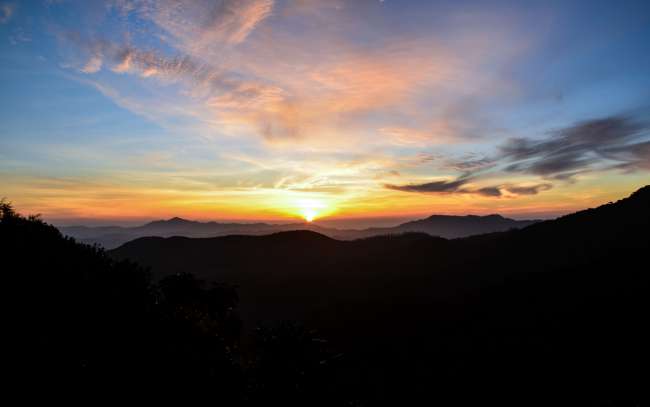
यात्रा के रिपोर्ट श्रीलंका के ह बा।
